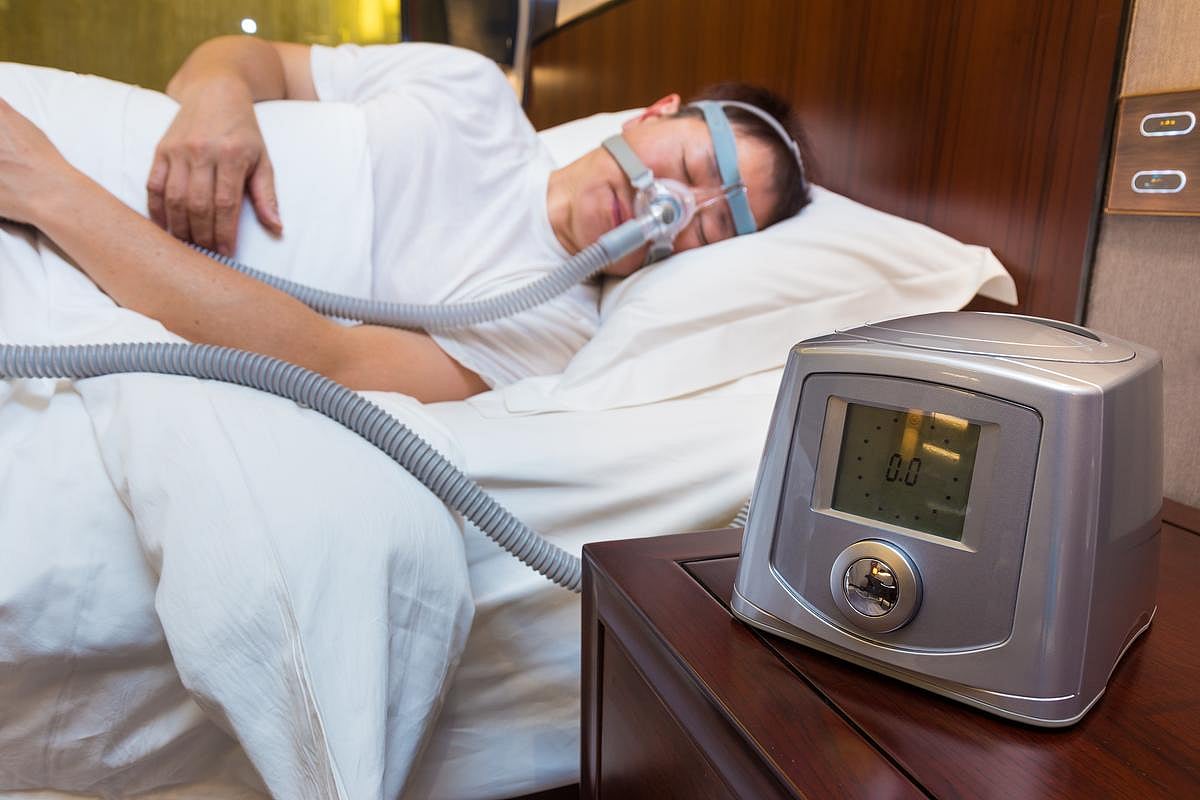
- Posted October 21, 2025
GLP-1 Drugs Help Protect Against Sleep Apnea, Study Says
TUESDAY, Oct. 21, 2025 (HealthDay News) — Weight-loss drugs like Ozempic and Zepbound might help protect people from health risks related to sleep apnea, a new study says.
Type 2 diabetes patients taking GLP-1 drugs were overall less likely to die within the next year, but those with sleep apnea did even better, researchers reported Monday at a meeting of the American College of Chest Physicians in Chicago.
“We observed one-year mortality in patients with type two diabetes who were prescribed GLP-1RAs to be substantially lower than patients not prescribed GLP-1RAs, with a disproportionate benefit observed in those also diagnosed with obstructive sleep apnea,” lead researcher Dr. Cosmo Fowler, a sleep medicine physician at Piedmont health system in Atlanta, said in a news release.
The results support the U.S. Food and Drug Administration’s (FDA) decision in December 2024 to approve Zepbound (tirzepetide) as the first drug to treat sleep apnea in adults with obesity.
Sleep apnea occurs when a person’s upper airway becomes blocked while they snooze, causing pauses in their breathing that awaken them. The result: poor sleep night after night.
Sleep apnea is more common in people with overweight or obesity, because excess weight from fatty deposits increases pressure on the upper airways, causing them to collapse, according to the Obesity Medicine Association. Extra pounds also reduce a person’s lung capacity.
For the new study, researchers analyzed data on nearly 1.8 million patients with type 2 diabetes, of whom about 28% had been prescribed a GLP-1 drug.
Glucagon-like peptide-1 (GLP-1) drugs mimic the GLP-1 hormone, which helps control insulin and blood sugar levels, decreases appetite and slows digestion of food. The drugs initially were developed to treat diabetes, before their weight loss benefits were observed.
Everyone taking a GLP-1 drug had a lower short-term risk of death, but those with sleep apnea had a 20% lower risk than those without the breathing disorder, results showed.
The absolute risk of death among people without sleep apnea was 0.9% for those on a GLP-1 drug versus 1.8% for those not taking the meds.
By comparison, the risk of death among sleep apnea patients was 1% for those on a GLP-1 versus 2.5% for those who weren’t.
“This large-scale analysis suggests that OSA status may act as an effect modifier in the association between GLP-1RA prescription and mortality,” Fowler said.
Based on these results, doctors should consider whether a person has sleep apnea when deciding whether to prescribe a GLP-1 drug, researchers said.
However, they said more research is needed to better understand why GLP-1 drugs might help sleep apnea patients, and to track the potential longer-term benefits.
Findings presented at medical meetings should be considered preliminary until published in a peer-reviewed journal.
More information
The Obesity Medicine Association has more on excess weight and sleep apnea.
SOURCE: American College of Chest Physicians, news release, Oct. 20, 2025
